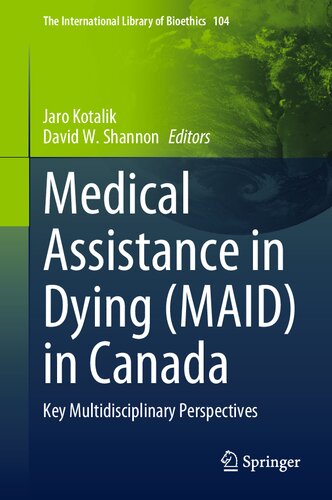

Most ebook files are in PDF format, so you can easily read them using various software such as Foxit Reader or directly on the Google Chrome browser.
Some ebook files are released by publishers in other formats such as .awz, .mobi, .epub, .fb2, etc. You may need to install specific software to read these formats on mobile/PC, such as Calibre.
Please read the tutorial at this link: https://ebookbell.com/faq
We offer FREE conversion to the popular formats you request; however, this may take some time. Therefore, right after payment, please email us, and we will try to provide the service as quickly as possible.
For some exceptional file formats or broken links (if any), please refrain from opening any disputes. Instead, email us first, and we will try to assist within a maximum of 6 hours.
EbookBell Team

4.1
60 reviewsThis book, written both for a Canadian and an international readership, provides a multidisciplinary review of the framework and performance of the Canadian Medical Assistance in Dying (MAID) program. In the first five years (2015-2021) of operation, this program delivered voluntary euthanasia and assistance in suicide to over 30,000 Canadian residents, presently representing a 30% annual growth. Looking back on these first five years, the 30 Canadian scholars and clinicians contributing to this volume raise important issues and attempt to answer key questions that have arisen in regards to its operation and its stated objectives. This volume strikes the most appropriate balance between the autonomy of persons who seek medical assistance, versus the interests and protection of vulnerable persons. Finally, the book makes suggestions on how the program can presently be improved. It identifies gaps in knowledge about MAID’s operational program and its impact on individuals, families and society in order to stimulate the necessary research that is essential to the evolution of a healthy and well-balanced program. As a first, comprehensive examination of medically assisted deaths in Canada, this publication will be of great value to lay, professional, academic, political audiences both domestically and internationally, especially in jurisdictions that are examining their options of permitting assisted deaths.